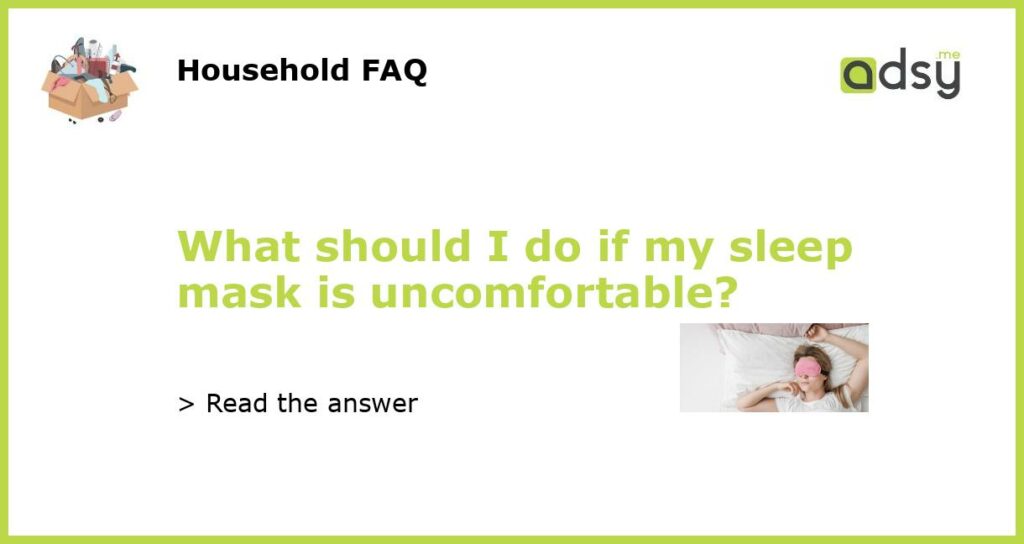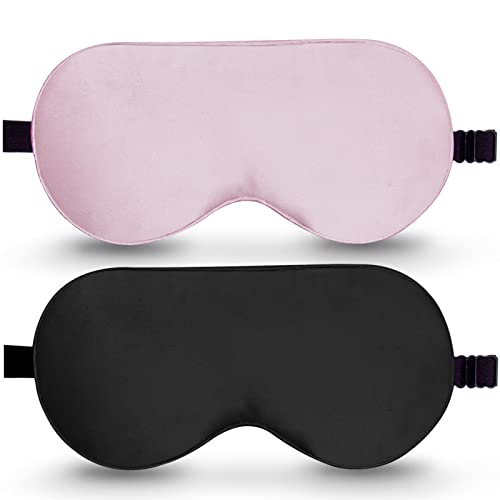Adjust the Fit of the Sleep Mask
If your sleep mask is uncomfortable, the first thing you should try is adjusting the fit. Sleep masks typically have adjustable straps that allow you to loosen or tighten the mask to fit your head comfortably. Start by loosening the strap and then placing the mask over your eyes. Gradually tighten the strap until the mask feels snug but not overly tight. Finding the right balance of tension is key to ensuring comfort.
Use a Different Material
Sleep masks come in various materials, such as silk, cotton, and memory foam. If your current sleep mask is uncomfortable, it might be worth trying a different material to see if that improves your comfort level. Silk sleep masks, for example, are known for their soft and smooth texture, which can be more gentle on the skin. Memory foam sleep masks conform to the shape of your face and provide a custom fit, which can alleviate any discomfort.
Try a Different Style of Sleep Mask
Not all sleep masks are created equal, and different styles may offer different levels of comfort. If your current sleep mask is causing discomfort, consider trying a different style to see if that makes a difference. Some popular styles include contoured sleep masks, which have a shape that follows the natural contours of your face, and pillow-style sleep masks, which have a padded section that rests on your forehead for added comfort.
Address the Cause of Discomfort
If adjusting the fit, changing the material, or trying a different style doesn’t alleviate the discomfort, it’s important to identify the specific cause of the discomfort. For example, if the sleep mask is pressing against your eyes, it may be too tight or too small. In this case, you may need to look for a larger or more adjustable sleep mask. If the discomfort is due to the strap digging into your head, you could try using a sleep mask with a wider or cushioned strap. By addressing the specific cause of the discomfort, you can find a solution that will provide you with a more comfortable sleep experience.
Consider Alternative Sleep Aids
If you’ve tried various adjustments and different styles of sleep masks without finding relief from discomfort, it might be time to consider alternative sleep aids. There are a variety of options available, such as earplugs, white noise machines, and essential oils, all of which can help create a more relaxing sleep environment. Additionally, practicing good sleep hygiene habits, such as establishing a consistent bedtime routine and creating a dark and quiet sleep environment, can also contribute to better sleep quality without relying solely on a sleep mask.






